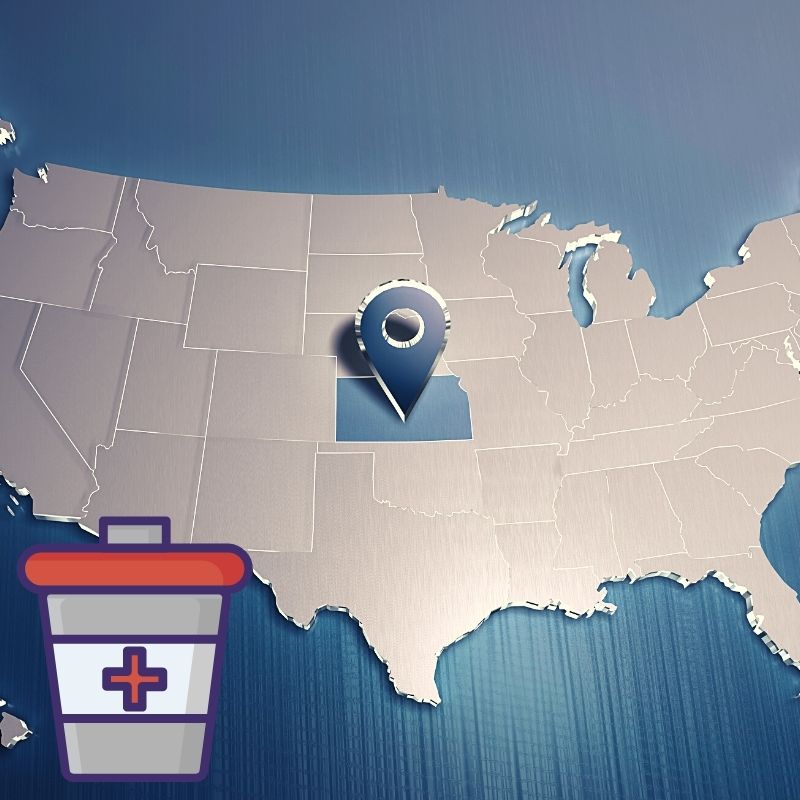
Who Regulates Medical Waste in Kansas?
The Kansas Department of Health and Environment is tasked with minimizing health and environmental impact regarding the generation, treatment, transportation and storage associated with all solid and hazardous waste in Kansas. Businesses and healthcare facilities can find specific information regarding sharps and medication disposal guidelines including information on the ban for sewering pharmaceuticals, collection and disposal programs and the safe disposal of sharps.
Facilities can get assistance with compliance to the Kansas regulations for pharmaceutical waste disposal and hazardous waste generator regulations. Medical waste generators must understand the regulations regarding hazardous waste. Small and large quantity generators must be familiar with and in compliance to all hazardous waste disposal requirements as not knowing the limitations or regulations is no excuse for non-compliance.
Kansas Regulations for Exempt Small Quantity Generator Stricter than EPA
All states, including Kansas, are required to meet all federal regulations and mandates including those set forth by the Environmental Protection Agency (EPA). States must adhere to these federal regulations although can adopt more stringent regulations for their state. For example, according to EPA regulations, a conditionally exempt small quantity generator (CESQG) generates no more than 200 lbs. (100 kg) of hazardous waste per month. In Kansas, however, the facility must generate less than 55 lbs. (25 kg) of hazardous waste per month to be considered a CESQG.
Types of Medical Waste in Kansas
Medical facilities in Kansas generally produce three basic types of waste:
- Radiological
- Chemical
- Infectious
Infectious waste is regulated as solid waste with both solid and hazardous waste compliance regulated by the Kansas Department of Health.
Penalties for Non-Compliance to Hazardous Waste Regulations in Kansas
The penalties for non-compliance to the Kansas Department of Health and Environment regulations for handling and disposing of hazardous waste are not to exceed $10,000 per day, per violation for each violation of Kansas hazardous waste statutes. Facilities that are found in violation of one or more statues for several days can face very costly fines. Facilities can protect themselves by following a pharmaceutical waste disposal program with drug disposal products that are safe and easy to use.
Rx Destroyer™ Helps Facilities with Proper Medication Disposal
Rx Destroyer™ is an important part of proper medication disposal programs in healthcare facilities, hospitals, small and large quantity generators of pharmaceutical waste across the country. With a wide selection of various product sizes, Rx Destroyer™ can meet the needs of any facility size with containers ranging from 16 oz. to 30-gallon drums. Rx Destroyer™ quickly neutralizes medications and liquid medications on contact with a patented*, activated charcoal formula that causes chemical digestion. Chemical digestion is an approved method of drug destruction according to the most recent DEA regulations and meets federal standards of safe drug disposal.
C2R Global Manufacturing is a leading pharmaceutical waste disposal company offering Rx Destroyer™ for safe and effective medication waste disposal. We provide turnkey solutions with mail back options, waste hauler assistance and consultation regarding DEA regulations and compliance. Contact us to learn more about how Rx Destroyer™ can help healthcare facilities in Kansas with safe and effective pharmaceutical waste disposal.

